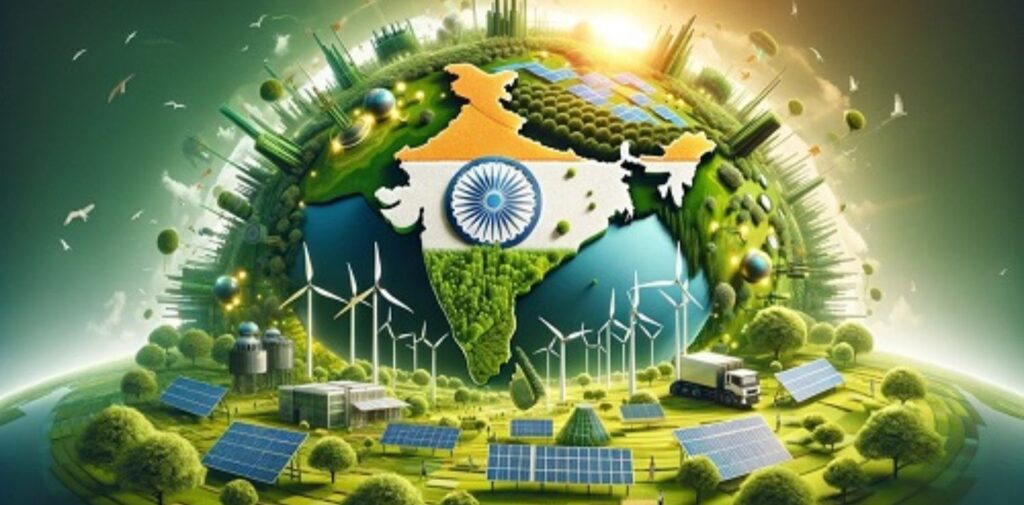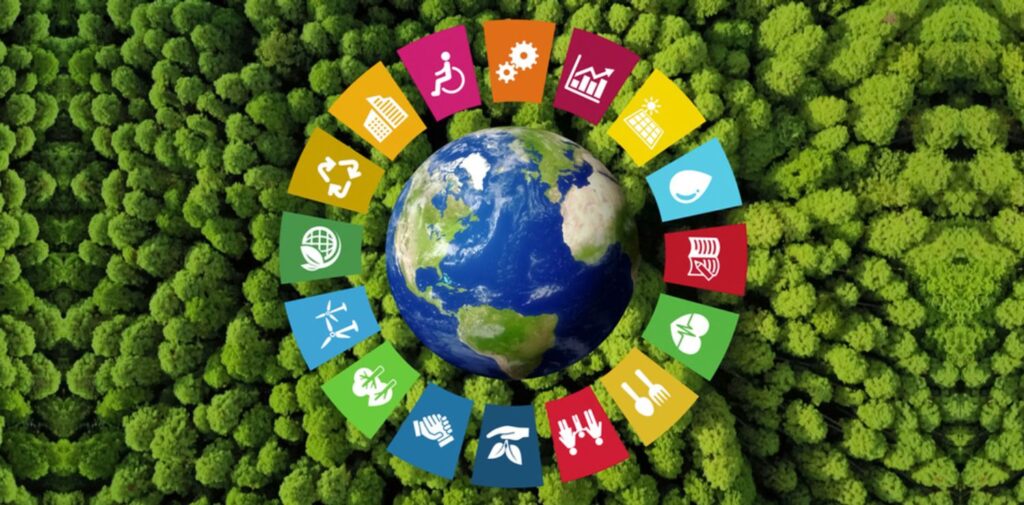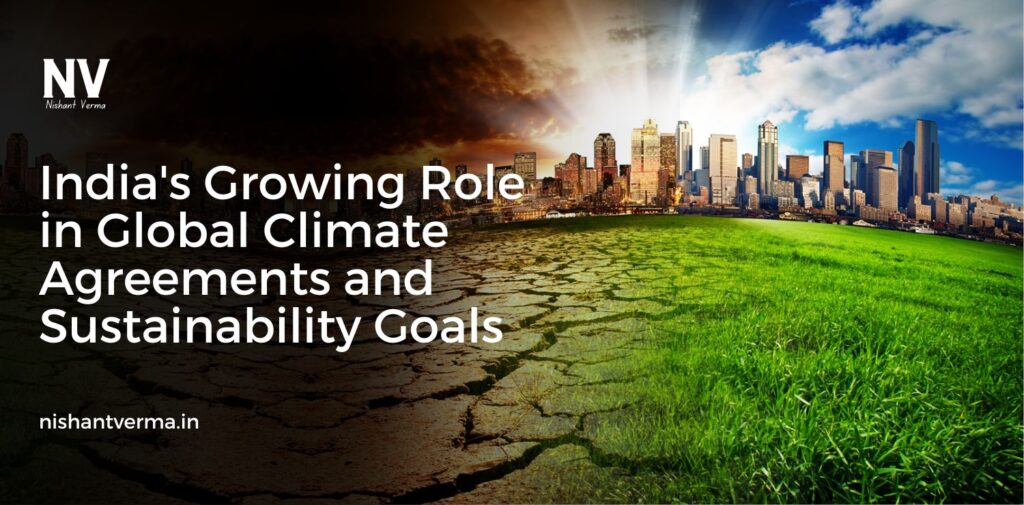India, one of the world’s largest and fastest-growing economies, has increasingly become an important player in global climate agreements and sustainability goals. As the country faces the challenges of rapid urbanization, population growth, and industrialization, its role in the international push towards a sustainable future is crucial. India’s contributions to global climate actions, alongside its ambitious sustainability targets, reflect a deep commitment to balancing economic growth with environmental responsibility.
India’s Commitment to Global Climate Agreements
India’s involvement in global climate agreements has grown significantly over the years. One of the most notable milestones was the Paris Agreement in 2015. India played a key role in the negotiations and the subsequent adoption of the agreement, which is aimed at limiting global warming to below 2°C above pre-industrial levels, with efforts to limit it to 1.5°C. India, despite being a developing country, has shown its commitment to addressing climate change while taking into account the developmental needs of its population.
Under the Paris Agreement, India set its Nationally Determined Contributions (NDCs) to reduce carbon emissions, increase the use of renewable energy, and improve energy efficiency. India pledged to reduce its emissions intensity by 33-35% by 2030 from the 2005 levels and increase the share of non-fossil fuels in its energy mix to 40%. This ambitious target was seen as a strong move toward addressing climate change while also promoting sustainable development. It showed that developing nations could contribute significantly to global climate goals.

India’s Renewable Energy Revolution
One of the most significant areas where India is making a difference is in renewable energy. The country has set an ambitious target to achieve 500 gigawatts (GW) of non-fossil fuel-based energy capacity by 2030. With a focus on solar and wind energy, India is rapidly becoming one of the world’s largest producers of renewable energy. The country has invested heavily in solar power, with projects such as the Rewa Ultra Mega Solar Park in Madhya Pradesh, one of the largest solar parks in Asia, and the Pavagada Solar Park in Karnataka.
India’s renewable energy capacity is growing steadily. By the end of 2020, India had over 90 GW of renewable energy capacity, with solar energy accounting for a significant portion. India aims to expand this even further, with the target of achieving 175 GW of renewable energy by 2022, and 500 GW by 2030. This ambitious transition towards renewable energy not only helps in reducing carbon emissions but also plays a vital role in making India’s energy future more secure and sustainable.
Sustainable Development Goals and India’s Efforts
India’s approach to sustainability is aligned with the United Nations Sustainable Development Goals (SDGs), which were adopted by all UN member states in 2015. These goals focus on ending poverty, improving health and education, reducing inequality, and protecting the environment. India has made significant progress towards achieving these goals, especially in areas like clean energy, affordable and clean water, and climate action.
The Indian government has initiated several programs and policies to support the SDGs, such as the Swachh Bharat Abhiyan (Clean India Mission), the Jal Jeevan Mission (providing water to every household), and the Pradhan Mantri Ujjwala Yojana (providing clean cooking fuel to millions). These initiatives are designed to ensure that development does not come at the cost of the environment and that economic growth is inclusive, benefiting all sections of society.
India’s commitment to SDGs is also reflected in its efforts to curb air pollution, improve waste management, and promote the efficient use of natural resources. The government has introduced several policies to reduce the country’s carbon footprint, such as the National Electric Mobility Mission Plan, which promotes the adoption of electric vehicles (EVs) across the country. By focusing on these areas, India is contributing to global sustainability goals while ensuring that its growth remains inclusive and environmentally responsible.

Adaptation to Climate Change: India’s Vulnerability and Solutions
India is highly vulnerable to the impacts of climate change, including rising sea levels, extreme weather events, and water scarcity. As one of the countries most affected by global warming, India has prioritized climate adaptation strategies alongside mitigation efforts. These strategies aim to help communities and sectors like agriculture, water resources, and health, adapt to the changing climate.
The government has launched several programs to address the impacts of climate change, such as the National Action Plan on Climate Change (NAPCC), which outlines eight national missions focused on adaptation and mitigation. These missions address issues like solar energy, energy efficiency, sustainable agriculture, water conservation, and urban resilience. Additionally, India is focusing on building climate-resilient infrastructure and promoting sustainable farming practices to protect its agricultural sector, which is highly dependent on weather patterns.
India is also working to strengthen its disaster management systems, ensuring that it is prepared to respond to the increasing frequency and intensity of extreme weather events like floods, droughts, and cyclones. By integrating climate change adaptation into its development plans, India aims to reduce the negative impacts of climate change on its people and economy while working towards a sustainable future.

India’s Green Diplomacy: Strengthening Global Cooperation
India has not only taken action within its borders but has also been actively involved in global climate discussions and initiatives. The country’s leadership in the International Solar Alliance (ISA), launched in 2015, is one example of its commitment to global climate cooperation. The ISA is a coalition of over 120 solar-rich countries that work together to promote solar energy and provide solutions for renewable energy access. By championing renewable energy and sustainability at the international level, India is strengthening its role in global climate governance.
India’s green diplomacy extends to its participation in international forums like the United Nations Framework Convention on Climate Change (UNFCCC), where it advocates for the principle of “common but differentiated responsibilities.” This principle recognizes that while all countries need to take action on climate change, developed nations, who have historically contributed more to global emissions, should take the lead in providing financial support and technology to developing countries.
India also plays a vital role in the implementation of the Paris Agreement, not only through its own targets but also by encouraging developed countries to meet their financial commitments to climate action. This cooperative approach helps create a more balanced and inclusive global climate framework, where all nations can contribute according to their capabilities.
The Path Ahead: India’s Climate Leadership
India’s growing role in global climate agreements and sustainability goals shows that the country is serious about addressing climate change while ensuring that its economic growth continues. The nation’s focus on renewable energy, sustainable development, and climate adaptation makes it a key player in the global climate movement.
However, challenges remain, such as balancing rapid industrialization with environmental protection, addressing air pollution in urban areas, and ensuring that climate action is inclusive. India’s path forward will require continued collaboration with both developed and developing nations, investment in clean technologies, and policies that ensure sustainability is at the heart of development.
Conclusion: Role in Global Climate Agreements
In conclusion, India’s growing role in global climate agreements and sustainability goals highlights its commitment to a greener, more sustainable future. Through innovation, policy changes, and international cooperation, India is working to create a world where economic development and environmental preservation go hand in hand. As the world’s third-largest emitter of carbon dioxide, India’s actions are crucial to the success of global climate efforts. By embracing sustainable practices, India is not only shaping its future but also leading the way towards a more sustainable and equitable world for all.




